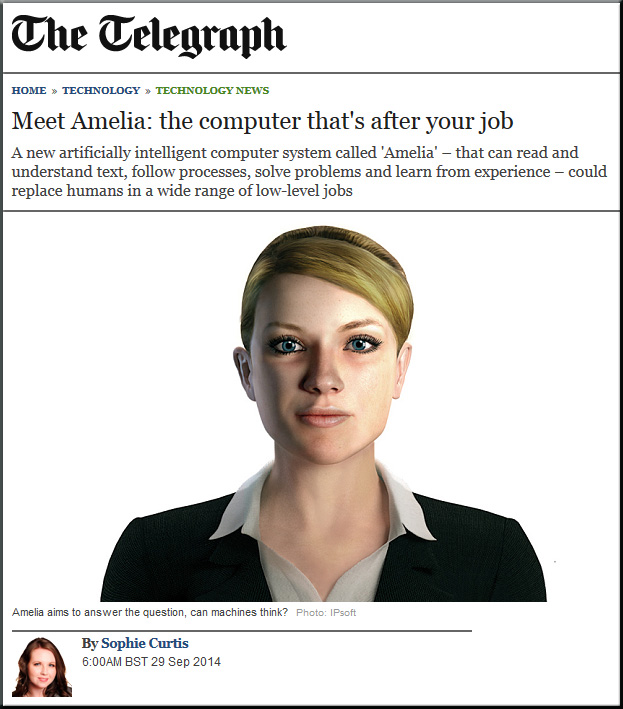Excerpt:
“Amelia, on the other hand, started out not with the intention of winning Jeopardy, but with the pure intention of answering the question posed by Alan Turing in 1950 – can machines think?”
…
While most ‘smart machines’ require humans to adapt their behaviour in order to interact with them, Amelia is intelligent enough to interact like a human herself. She speaks more than 20 languages, and her core knowledge of a process needs only to be learned once for her to be able to communicate with customers in their language.
…
Amelia has already been trialled within a number of Fortune 1000 companies, in areas such as manning technology help desks, procurement processing, financial trading operations support and providing expert advice for field engineers.
In each of these environments, she has learnt not only from reading existing manuals and situational context but also by observing and working with her human colleagues and discerning for herself a map of the business processes being followed.
From DSC:
- How does the trend towards more powerful, capable Artificial Intelligence (AI) applications and services affect what we should be teaching our students?
- How should our curricula change/adapt to these trends?
- How should employees reinvent themselves and protect their futures?
Part of me thinks, “This is some scary stuff!” Another part of me reflects on who is controlling such powerful technologies and wondering how such technologies are going to be used. One thing’s for sure, we better hope that the people controlling these technologies care about other human beings. It isn’t just minds that are involved here. Most assuredly, hearts are involved here as well.
Addendum on 10/2/14:
- The Robot (Ethical) Dilemma — from seriouswonder.com by Stephen Bianchini









